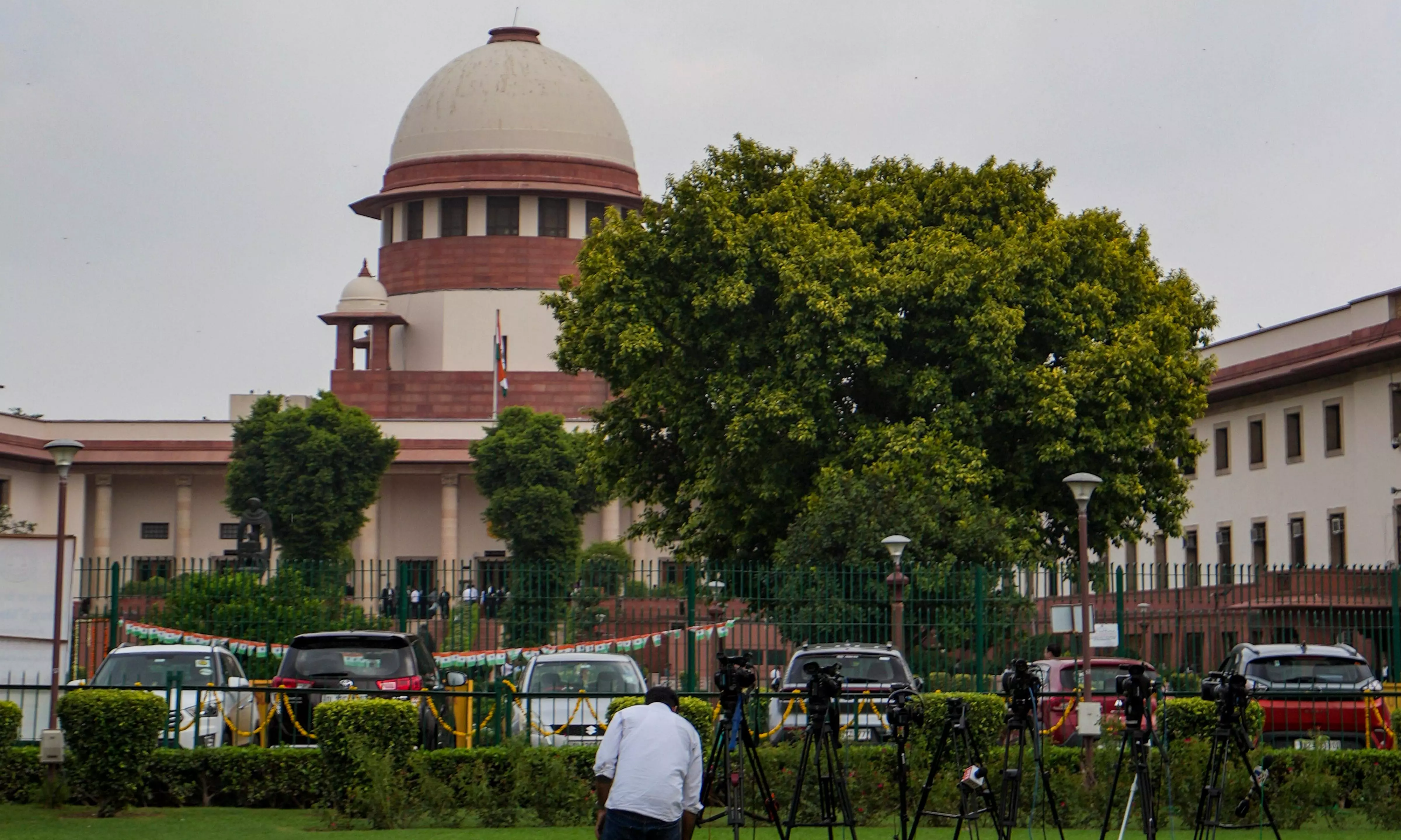
SC rejects Telangana's plea against HC stay on 42 pc OBC quota in local body polls
The Supreme Court dismissed Telangana’s plea against the HC order staying its move to raise the OBC quota in local body polls to 42 per cent, directing the HC to decide the case

The Supreme Court on Thursday (October 16) dismissed the Telangana government’s petition challenging the Telangana High Court’s interim order that stayed the State government’s decision to increase Other Backward Classes (OBC) reservation in local body elections in the State to 42 per cent. The Telangana High Court on October 9 stayed the state government’s decision to increase the OBC quota in local body elections.
A bench comprising Justice Vikram Nath and Justice Sandeep Mehta stated that the Telangana High Court should decide the main matter without being influenced by the apex court’s dismissal of the Telangana Government’s Special Leave Petition, reported Live Law.
SC questions timing of the move
During the hearing, Justice Nath asked senior advocate Dr Abhishek Manu Singhvi, appearing for the Telangana government, why the reservation was not introduced before the elections were notified.
Singhvi responded, saying that the Telangana Governor kept the bill pending without granting ascent, adding that the Bill became a law on "deemed assent" in accordance with the Supreme Court's judgment in the Tamil Nadu Governor case. Singhvi argued that without making any challenge to the law, a stay has been secured.
Also Read: Parliamentary panel urges law for SC, ST, OBC quotas in private higher education institutions
‘How do you challenge a Bill?’ asks SC
Upon being asked by Justice Nath, "How do you challenge a Bill?", Singhvi replied that the Bill has now become an Act and has been acted upon based on deemed ascent.
At this point, Senior Advocate Gopal Sankaranarayanan, appearing for one of the petitioners, said that the challenge was against the Government order that resulted in the reservation crossing the 50 per cent mark.
Citing the K. Krishna Murthy (Dr.) & Ors. v. Union of India and Vikas Kishanrao Gawali judgments, he pointed out that triple tests have to be fulfilled before granting a reservation in local self-government institutions.
“Earlier, it was 15 per cent, 10 per cent and 25 per cent respectively for SC, ST and OBCs within the 50 per cent limit,” he added. Gopal Sankaranarayanan pointed out that the top court has made it clear in orders in cases of Maharashtra and Madhya Pradesh that reservation should not exceed 50 per cent for local body polls.
Also Read: Kejriwal urges Centre to add Delhi's Jat community to Central OBC list
‘50 per cent ceiling not inflexible rule’
Singhvi countered, saying that the 50 per cent upper ceiling was not an "inflexible rule", adding that the state government has satisfied the triple tests to hike the reservation.
"Based on these exercises, you have come up with the Ordinance and a Bill. That is yet to take a final shape, " Justice Nath said. When Singhvi asserted that the law was in operation, Justice Mehta pointed out that the judgment in Gawali did not allow reservation to cross the 50 per cent limit.
Also Read: Maratha quota opponents received the most votes in Marathwada, claims Fadnavis
What SC said
Singhvi responded, saying that the verdict in the Gawali case stated that the 50 per cent limit in reservation can be crossed if there is empirical data. He also said that Telangana was the only state to have conducted the survey.
"You may continue with your elections… (State's appeal) dismissed ... The order shall not affect the High Court in deciding the case on its own merits," the bench said as quoted by Bar and Bench.

